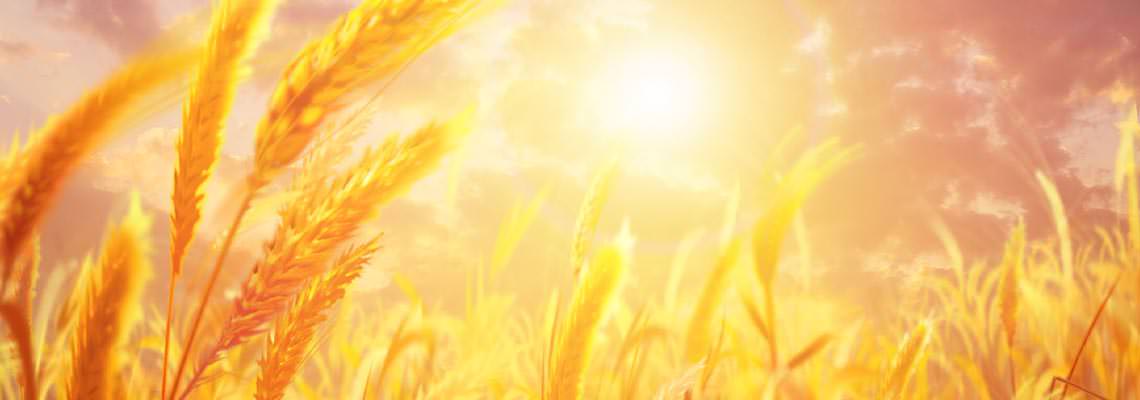Matthew 13:30
“Let them grow together until harvest; then at harvest time I will say to the harvesters,
“First collect the weeds and tie them in bundles for burning; but gather the wheat into my barn.”
Dear People of God,
It is never easy to understand how and why God does not intervene to remove the weeds that make the life of the wheat so difficult. Yet God in his wisdom lets them grow together.
the patience and love of God is on display.
The work of separating and dealing with the darnel and the wheat is work of God.
The Parable of the Weeds (13:24-30, 36-43) uses the same agricultural motif, but deals with the problem of the bad among the good in the world (v. 38).
“What the parable itself clearly tells us…is that the kingdom must contend with evil all around it, and that God permits evil and good to co-exist until the end.
The parable both guides and encourages disciples.
We need not weed out the bad (the message of the parable).
God will deal with the bad in the harvest (the message of the interpretation).
Perhaps some of us are overzealous “weeders” as in Matthew’s community who wanted to purify the community by rooting out the bad seed.
It is wilful attempt to interfere with God and a temptation for followers of Jesus in every age.
When the darnel and the wheat look alike as they grow, the harvest time is the most appropriate time to separate them.
We cannot avoid living with the bad people. We must never hate a sinful person. God hates our sins not the sinner per se.
We do not need to enter weeding frenzy; we end trampling the wheat in a haste and out of ignorance.
It is not necessary to damage the crop by pulling out the darnel.
There is no hurry to condemn the other member of faith and believes while we believe and worship the Lord.
The judgement day is the right time for God to pass judgement on the quality of the harvest.
Jesus makes clear that we simply cannot be certain who is “in” or who is “out.”
There is going to be lot of surprises and shock in the way God is going to deal with the harvest. (7:21-23; 8:11-12; 21:31-32; 25:31-46).
We need not the place of God in dealing with the darnel that is growing in the field out there.
How hard for us to recognise the evil within and to get rid of it at times. We tend to wait and put up with the evil that is growing in us but when it comes for the other, we rush to do away with it even at the cost of damaging and destroying and ignoring the good in others.
Mt. 7:3-5 “Why do you look at the speck of sawdust in your brother’s eye and pay no attention to the plank in your own eye? How can you say to your brother, ‘Let me take the speck out of your eye,’ when all the time there is a plank in your own eye? You hypocrite first take the plank out of your own eye, and then you will see clearly to remove the speck from your brother’s eye.
We need to protect the wheat and provide all that is needed for its sustenance and growth. Our concentration needs to be on the wheat not on the darnel. We need meticulously watch the growth and safety of the wheat. God will deal with the darnel in God’s time.
“Unless our righteousness exceeds that of the scribes and Pharisees, we will never enter the kingdom of heaven (Mt. 5:20).
God alone perceives the heart and lives. We cannot judge people by the way they look.
“The Lord does not look at the things people look at. People look at the outward appearance, but the Lord looks at the heart.” (1 Samuel 16:7)
Sin and Grace grow together. We cannot recognise the influence and impact of sin in our life unless we are led by grace. “No matter how much sin crept in, there was always more grace.” (Rom.5:20)
Are we in a hurry to listen to the Word of God as we are enthusiastic about doing the will of God?
The struggle between the good and the evil is indeed spiritually normal, and it allows us to recognise the work of the Holy Spirit in our lives. “Likewise, the Spirit helps us in our weakness; for we do not know how to pray as we ought, but that very Spirit intercedes with sighs too deep for words.” (Rom.8:26).
In the interpretation of this parable Jesus includes Judas, who will betray Jesus (26:47 ff.)—Peter, who will deny him (26:69 ff.)—Thomas, who will doubt him (John 20:24 ff.)—and James and John, whose concern has more to do with personal ambition than the kingdom of God (20:20-23; cf. Mark 10:37). In the end, only Judas will be lost. Who knows the Risen Lord might even forgive him in His abundant mercy?
It is all about patience that strengthens any relationship. When we know a lot of bad side of a person, we have the high responsibility to help them grow towards God not to develop an attitude of disgust and disregard.
We are not called to tolerate our imperfection but rather to pursue in imperfection without condemning and condoning the imperfect sides of our life and of others.
We are not called be the purifiers of the community but to humidify of the humanity.
Caring confrontation is needed but one on one basis not exposing and destroying the others. It is the method of Mathew. (Mt.18:15-20).
Let us give the place and honour in dealing with the matters of heart and soul to God.
we are reprimanded by this parable of Jesus that there is a process of ups and downs, forces of evil and the enemy cannot damage the growth of the crop of good works in us.
May we embrace the attitude of Jesus in dealing with Zacchaeus (Luke 19:1-10).
God will have the last word on the harvest. May we continue trust and be patient until the day of the Lord.


